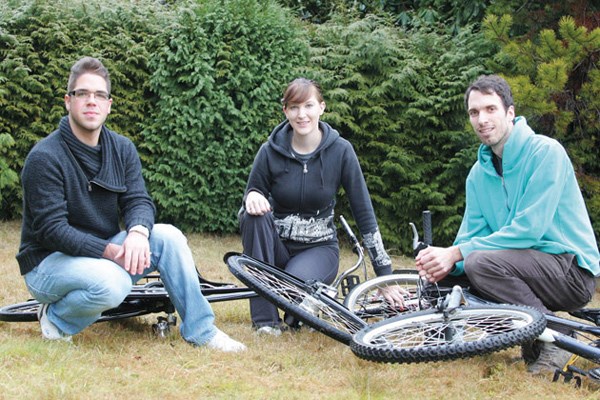Burnaby NOW reporter Jennifer Moreau caught up with Matthew Stuart, a local resident who's starting a Burnaby network of people who want to live without fossil fuels.
Burnaby NOW: Please introduce yourself.
Matthew Stuart: My name is Matthew Stuart, I am a farmer and have been living in Burnaby for just over a year.
BN: Tell us about the work you're doing to start a Transition Network in Burnaby?
MS: I got involved with Transition because of its skill-sharing networks such as urban agriculture, beekeeping and canning/preserving, and I would like to see Burnaby develop a Transition Network of its own.
Village Burnaby - Burnaby's new Transition Network - held its initial meeting in December 2011 and had 20 participants from across the city. It is my hope that Village Burnaby will create neighbourhood networks of advocates working on community issues. Issues identified in our initial meeting were better transportation, more community gardens, community currency, as well as neighbourhood events such as block parties and car free days.
Folks have already started working on a permaculture garden in South Burnaby, and our next meeting will focus on actions that the group can take.
BN: What is a Transition Network exactly? It seems like more of a movement than a network. What's the goal?
MS: Transition is about moving communities away from their dependence on fossil fuels. Various Transition groups have met these goals by growing their own food, creating their own energy, developing their own currencies and the like.
I would love to see neighbourhoods come together under the (Burnaby) Village banner to share their skills and make their communities better. Maybe it's growing food, but maybe it is something completely different - I think that is the exciting part.
BN: Can you give us some examples of how the network functions?
MS: Projects that have come out of Transition Networks include permaculture, or the building of agricultural systems that mimic nature and need very few inputs. Local currencies have also come from Transition, the Totnes Note came from the first transition network in Totnes (England). Many initiatives function around skill sharing, be it preserving, beekeeping or bicycle maintenance. Networks always share skills within their communities.
BN: Is this a worldwide phenomenon?
MS: Absolutely. The movement started in Totnes but has since spread worldwide.
Transition networks are by no means confined to large cities, and we are now seeing initiatives in favelas across Brazil.
BN: How practical is this? Is it possible to live a lifestyle completely free of fossil fuels?
MS: Imagine your neighbours began sharing their yards to grow food and worked together to preserve and store food for the winter. You start a seed saving collective with your neighbours, and your street is now nearly independent of fossil fuels related to food production.
Now imagine you start your own currency and trade skills within your community for money that can only be spent locally. People now have a local market for their goods and services so they don't have to leave the community for work.
It's not easy, and it won't happen overnight, but if we can organize on a local scale then we can start to imagine living without any fossil fuels.
BN: How can people get involved?
MS: Village Burnaby has a page currently being hosted by Village Vancouver (villagevancouver.ca). It's easy to sign up and join the network online. The online community makes it easy to network with other members, and sign on to activities that interest you.
BN: Is there anything else we should know?
MS: Above all else Transition is about having fun and celebrating community.
Our group plans to work hard to achieve its goals, but we will also do our best to celebrate. We meet over food, and we will be planning movie nights and other fun activities in the near future.
?
The next Transition meeting is Wednesday, Jan. 25 at Bonsor Recreation Centre at 6: 30 p.m.
www.twitter.com/JenniferMoreau



